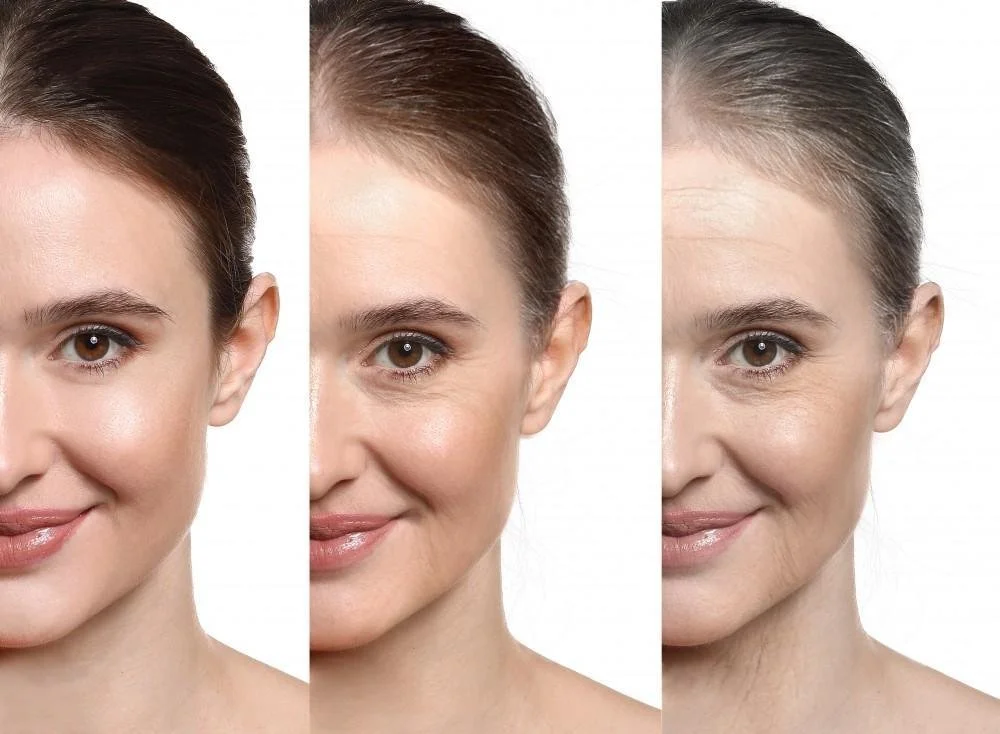Lowering Your Biological Age Can Improve Heart Health (Here Are Some Essential Steps How)
There is new research out from the American Heart Association that shows a link between strong heart health and slower biological aging, and best of all? There are specific steps that can you can take to help get there.
About the study
The research, by the American Heart Association (AHA) and presented this past weekend in Philadelphia, has revealed a significant link between cardiovascular health and biological aging. The study, involving over 6,500 adults, utilized the AHA's "Life’s Essential 8" checklist to assess cardiovascular health and its impact on biological aging, as measured by phenotypic age. This measure of age is calculated using nine blood markers for metabolism, inflammation, and organ function, plus one's chronological age. Phenotypic age acceleration is the difference between one’s phenotypic age and actual age, with a higher value indicating faster biological aging.
What is phenotypic age?
Phenotypical age is calculated by combining a person’s actual age with the levels of nine markers in the blood collected as part of a typical annual physical. Previous research has shown that phenotypical age correlates well with a person’s risk for premature death.
Among the blood levels that play a role in determining a person’s biological age are those that indicate liver, kidney and immune system health, risk for diabetes, and level of inflammation.
"We found that higher cardiovascular health is associated with decelerated biological aging, as measured by phenotypic age. We also found a dose-dependent association — as heart health goes up, biological aging goes down," study author Nour Makarem, an assistant professor at Columbia University Irving Medical Center, said in a news release from the American Heart Association. "Phenotypic age is a practical tool to assess our body's biological aging process and a strong predictor of future risk of disease and death."
However, researchers also found that the inverse was also evident, in that for those in poorer heart health, the phenotypic age went up, meaning they were biologically "older" than their chronological age.
Dr. Makarem continued, "For example, the average actual age of those with high cardiovascular health was 41, yet their average biological age was 36; and the average actual age of those who had low cardiovascular health was 53, though their average biological age was 57."
How can we slow aging?
The American Heart Association's (AHA) "Life’s Essential 8" is comprised of these eight steps, all of which have demonstrated significance in slowing down the aging process.
1. Eat Better
Goal: Focus on a diet rich in whole foods, fruits, vegetables, lean proteins, nuts, seeds, and use non-tropical oils like olive and canola.
Impact: This diet pattern reduces the risk of cardiovascular diseases and supports overall body health, which is crucial in slowing down the aging process.
2. Be More Active
Recommendation: Adults should aim for at least 2.5 hours of moderate or 75 minutes of vigorous physical activity per week.
Impact: Regular physical activity improves heart health, enhances metabolism, and maintains muscle and bone strength, all of which contribute to a younger biological age.
3. Quit Tobacco
Concern: Tobacco use, including cigarettes and vaping, is a leading cause of preventable death and is linked to about a third of all heart disease deaths.
Impact: Quitting tobacco can significantly reduce the risk of heart disease, improve lung function, and contribute to overall health longevity.
4. Get Healthy Sleep
Requirement: Most adults need 7-9 hours of sleep per night.
Impact: Adequate sleep is essential for healing, brain function, and reducing the risk of chronic diseases, all of which are critical for maintaining a younger biological age.
5. Manage Weight
Method: Using the Body Mass Index (BMI) to maintain a healthy weight, with an optimal BMI being around 25.
Impact: Healthy weight management is associated with reduced risks of various diseases and helps in maintaining a youthful physiological state.
6. Control Cholesterol
Focus: Aim to maintain low levels of non-HDL or 'bad' cholesterol.
Impact: Managing cholesterol levels helps prevent heart disease and contributes to overall cardiovascular health, a key factor in slowing biological aging.
7. Manage Blood Sugar
Importance: Keeping blood sugar levels in check is crucial, as high levels can damage the heart, kidneys, eyes, and nerves.
Impact: Proper blood sugar management is essential for preventing complications that can accelerate biological aging.
8. Manage Blood Pressure
Standard: Keep blood pressure within optimal ranges, ideally less than 120/80 mm Hg.
Impact: Managing blood pressure helps in reducing the risk of heart diseases and stroke, thereby contributing to a younger biological age.
The AHA's "Life’s Essential 8" provides a comprehensive approach to maintaining cardiovascular health, which is closely linked to biological aging. Each of these eight steps contributes significantly to slowing down the aging process by promoting heart health, reducing the risk of chronic diseases, and enhancing overall quality of life. According to the AHA, by adhering to these guidelines, individuals can effectively manage their biological age and enjoy a healthier, longer life.
Sources
- https://www.abstractsonline.com/pp8/?_ga=2.252499981.569559676.1693429947-1069604919.1693247687#!/10871/presentation/9306
- https://www.cbsnews.com/news/8-steps-heart-health-slow-biological-aging-by-6-years/
- https://www.nbcnews.com/health/heart-health/slow-your-biological-age-report-explains-how-rcna123594

